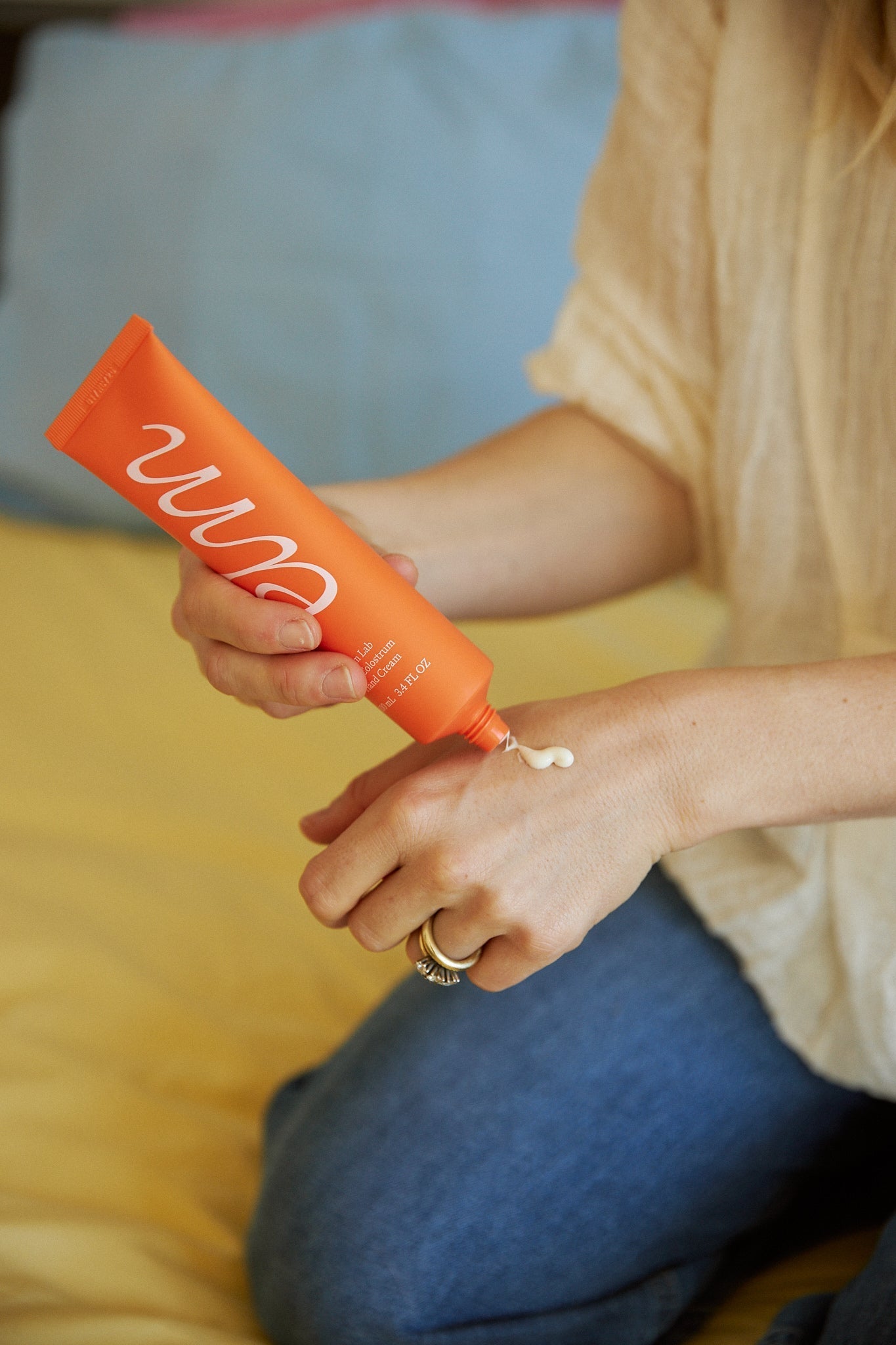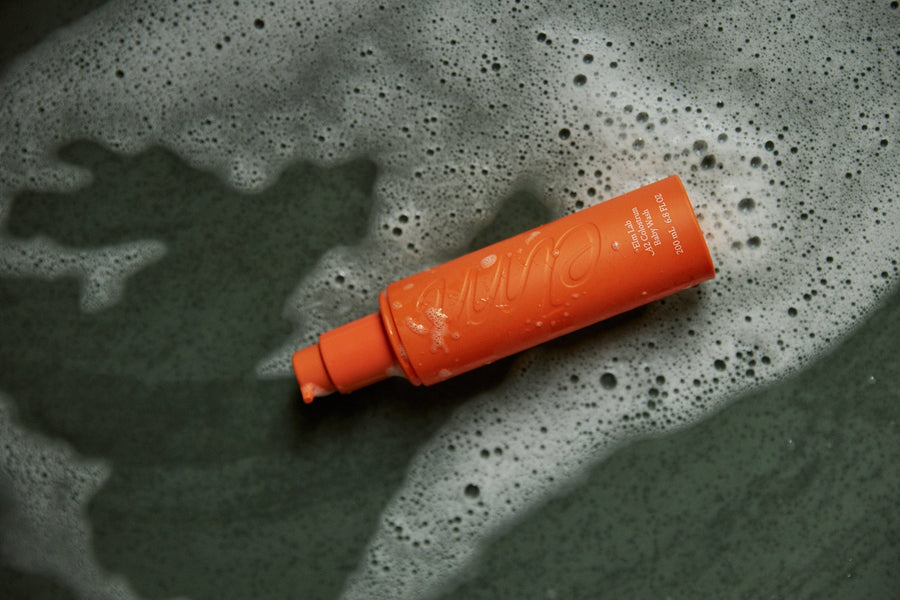Colostrum Cream and Your Skin
Winter presents a uniquely challenging environment for skin health. Exposure to cold air, fluctuating humidity, strong winds and indoor heating systems rapidly depletes the skin’s natural moisture levels and undermines its protective barrier. When this barrier is compromised, the skin becomes more susceptible to irritation, inflammation and heightened sensitivity, a state commonly referred to as “sensitive skin.”
This is where A2 colostrum offers gentle support. As a naturally bioactive ingredient, it delivers a rare synergy of skin-identical nutrients, each one biologically familiar and being studied for its role in supporting hydration and barrier comfort. These include hydrating peptides (which help support the skin’s natural barrier), hyaluronic acid (a moisture-binding molecule that enhances suppleness), immunoglobulins (proteins being explored for their role in skin resilience), growth factors (proteins being studied for their role in skin renewal), lactoferrin (proteins being explored for their role in skin comfort) and essential nutrients like vitamins A, E and zinc. Together, these elements contribute to hydration, comfort and barrier support, making A2 colostrum a thoughtful addition to winter skincare for sensitive skin.
Understanding Sensitive Skin
Sensitive skin is not just a temporary condition, it's often a sign of a disrupted skin barrier. This barrier, composed of tightly packed cells surrounded by a “lipid matrix”, a mix of natural fats including ceramides, cholesterol and fatty acids, functions as the skin’s primary defense system. Much like mortar between bricks, this lipid matrix helps keep skin cells sealed together, locking in moisture and blocking out irritants. When this structure is weakened, the skin becomes increasingly reactive, prone to dryness, redness and inflammation, the hallmark signs of sensitivity.
Winter conditions accelerate this breakdown. Cold air carries very little moisture, which causes the environment to draw water from the skin, a process known as transepidermal water loss (“TEWL”). As hydration escapes faster than the skin can naturally replenish it, the surface becomes dry, tight, inflamed and more vulnerable to irritation, all common characteristics of sensitive skin.
Strong winds further compromise the skin barrier by physically disturbing the skin’s surface and speeding up TEWL. As air moves rapidly across the skin, it dislodges the natural oils in the lipid matrix, much like wind weathering a protective coating. At the same time, TEWL increases, leaving the skin drier and more exposed. Without this lipid layer intact, irritants can penetrate more easily, triggering inflammation and amplifying sensitivity.
Indoor heating adds another layer of stress. Most heating systems significantly reduce indoor humidity, creating a dry environment that, much like cold air outside, draws moisture from the skin to compensate. This accelerates TEWL, leaving the skin persistently dehydrated. Over time, this steady depletion of water and essential oils weakens the lipid matrix that supports the skin barrier. As the barrier becomes less effective, the skin’s ability to retain hydration and self-repair diminishes, leading to increased dryness, inflammation and sensitivity.
The cumulative effect is a skin barrier under stress. As moisture and lipids are steadily lost, microscopic cracks begin to form in the surface, increasing TEWL and leaving the skin more reactive. Inflammation becomes more pronounced and as protective layers thin, sensory nerves near the surface may be exposed, triggering sensations such as stinging, burning or itchiness. These are hallmark features of sensitive, inflamed skin during the colder months. To help restore balance, the skin may benefit from ingredients that support hydration and barrier integrity. This is where A2 colostrum stands out, offering biologically familiar compounds that are being studied for their role in supporting skin comfort and barrier function.
Why Is Colostrum One of the Best Ingredients for Sensitive Skin?
Colostrum is the first form of milk produced by mammals after giving birth, uniquely rich in protective nutrients, immune factors and growth signals. Unlike mature milk, it is specifically designed to support a newborn’s development, defence and repair systems from the very first moments of life.
What makes colostrum so powerful for sensitive skin is both what it contains and how it behaves. It delivers an array of bioavailable compounds, including peptides and growth factors (biological messengers that signal skin cells to regenerate, rebuild structure and strengthen the barrier where it’s been compromised). These components contribute to hydration and are being studied for their role in supporting collagen maintenance and skin comfort. Colostrum also contains immunoglobulins, proteins being explored for their role in helping skin respond to environmental stressors. Lactoferrin, another key protein, is being studied for its role in skin comfort and microbiome support. Alongside these, colostrum delivers essential vitamins and minerals like A, D, E, B-complex and zinc, important for hydration, antioxidant support and maintaining skin balance. These are complemented by enzymes and antioxidants that support antioxidant protection and help defend against environmental stressors.
Unlike synthetic ingredients that tend to target only one concern, colostrum supports the skin on multiple levels at once, hydrating, comforting and supporting the skin’s natural barrier. Its natural compatibility with the body allows these compounds to work in concert with the skin’s biology, helping maintain balance without overwhelming sensitive skin.
What’s the Best Winter Skincare Swap for Sensitive or Cracked Skin?
In winter, few areas suffer more than frequently exposed hands. Elm Lab’s hand cream offers a deeper kind of care, powered by A2 colostrum and sourced from the founders’ sixth-generation family farm in Otago, New Zealand, established in 1853. That’s over 170 years of custodianship behind a single, powerful ingredient.
Rich in peptides, immunoglobulins and proteins being studied for their role in skin comfort and resilience, this colostrum supports the skin’s hydration and barrier comfort, helping skin feel more resilient when exposed to seasonal stressors. Unlike conventional hand creams that simply coat the surface, Elm Lab’s hand cream formula works in biological harmony with the skin, helping maintain balance and comfort.
Our Conclusion on Colostrum Cream
Winter is tough on skin, especially when it’s sensitive, cracked or worn thin by daily exposure. Elm Lab’s A2 colostrum skincare formulas are purpose built to support hydration and comfort, delivering gentle care rooted in science and over 170 years of family farming heritage.
Disclaimer
This article is for informational and educational purposes only. It does not constitute medical advice, nor does it make therapeutic claims about Elm Lab Skincare Limited’s (“Elm Lab”) products. Elm Lab’s skincare range is formulated as a cosmetic product and is not intended to diagnose, treat, cure or prevent any disease or condition.






